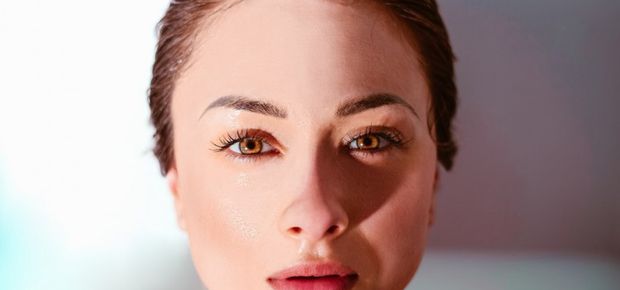
Acne is a common skin condition that affects eighty percent of women and ninety percent of men in their adolescent period. However, acne does not just occur in puberty, it can also occur in adulthood. Acne is characterised by pimples, blackheads, and pustules that most often occur on the face, neck, upper chest and back. Severe forms of acne results in cysts or inflamed nodules that can cause scarring. While there are many conventional treatments for acne, there are also natural therapies can be quite effective.
Dietary Changes
Simply changing your diet can help to reduce the severity of your acne. Try to avoid refined, processed or fatty foods. Trans fats especially, should be avoided. Omega 3 can be very beneficial for people that suffer from acne and these can be obtained from cold water fish or flaxseed oil. Whole foods that have not been processed are best, and acne sufferers should aim to eat plenty of fresh fruits and vegetables, as well as whole grain foods. For more information see nutrition.
Vitamins and Supplements
Vitamin A may be able to help reduce the production of sebum. However, supplementation of vitamin A may be unnecessary if a person is getting enough beta-carotene, vitamin E, and zinc in their diet, all of which are necessary for the body to make vitamin A. Zinc can also be useful in helping to prevent acne as it helps to heal blemishes, reduce inflammation, and also reduce the effects of hormones on the skin. It is best to increase your intake of zinc through your diet before you look to supplementation. Vitamin B6 can be useful in helping with acne that occurs before or during a period, as it is necessary for the metabolism of steroid hormones and reduces the skin’s sensitivity to testosterone. Selenium supplements may also be useful for people that suffer from severe, or pustular, acne.
Herbal Medicine
One herbal blend that is particularly useful for people that suffer from acne includes equal parts of sarsaparilla, yellow dock, burdock, and cleavers. These herbs are strong blood and lymph cleaners. Tea tree oil is also well recognised for its ability to be topically applied to blemishes and lesions in order to kill bacteria and reduce inflammation. Other herbs that have anti-inflammatory properties include calendula, German chamomile, witch hazel, licorice root, and flaxseed or flaxseed oil. For more information see herbal medicine.
Ayurveda
In Ayurveda, it is believed that whatever cleans the blood will also help to cure acne. There are two main preparations that are recognised as being useful for acne – Neem and Haemafine syrup. Neem is one of the most powerful blood purifiers and detoxifiers and is often used to help maintain healthy skin. It is used externally. Haemafine syrup is used for all types of skin disease and, as well as giving the skin a healthy glow, it also improves the complexion and helps to cure acne.
Homoeopathy
When prescribing a homoeopathic remedy, the homoeopath will take the specific person into account, as each individual is different (also see homeopathy). Some homoeopathic remedies that are commonly used for acne include:
- Belladonna – helps those that have heat flushes in the face, or who have pustular acne that is helped by the application of cold.
- Calendula – is useful for acne that involves pustules or blisters.
- Hepar sulphur – is useful for painful, pus-filled acne.
- Kali bromatum – is helpful for deep acne, especially those that occur on the forehead.
- Silicea – is helpful for pustules or pit-forming acne.
Biofeedback and Cognitive Imagery
Stress, especially emotional stress, can make acne worse so techniques such as biofeedback or cognitive imagery can actually help with acne symptoms. Biofeedback is a therapy that trains a person to control bodily processes that normally occur involuntarily – such as heart rate or muscle tension. During a biofeedback session, a relaxation technique such as guided imagery is employed in order to promote good physical and emotional effects. By combining biofeedback and cognitive therapy, a person is able to visualise and understand that bodily processes that occur as they go from feeling tense to feeling relaxed.
Originally published on May 20, 2008








